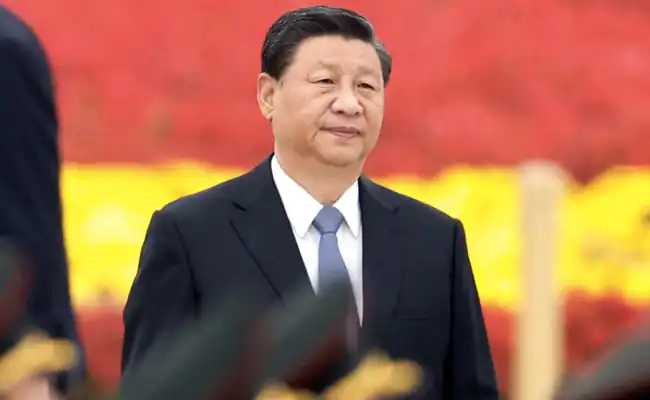China, with rise its military and economic power, is investing in propaganda and influence operations to enhance what it calls its “discourse power”. In fact since the rise of Xi Jinping to power and China’s adoption of a more confrontational foreign policy, it increasingly sought to sway global public opinion. Nevertheless, notwithstanding its assiduous efforts, the results of these efforts are sub-optimal due to a vast gap in its propaganda and reality of Chinese acts and engagements.
Atlantic Council Report on China’s Discourse Power operations in the Global South released in April 2022 is a kind of assessment and stock taking of China’s success in building a positive image as a rising global power. The report focuses on Chinese activities in Sub-Saharan Africa, Latin America and the Middle East.
The Atlantic Council Digital Forensic Research Lab (DFR Lab) has concluded in its finding that although China’s global influence has grown, this has not necessarily translated into winning the hearts and minds across the Global South. The finding is indicative of lingering doubts and disbelief among the developing countries which have become part of China’s Belt and Road Initiative or gone for bilateral cooperation for infrastructure funding and development. China has used its deep pocket to enhance its sphere of influence among the countries of the Global South by supporting connectivity projects like roads, rail and ports or building energy projects. However, the outcomes of these projects have failed to pass the test of cost-benefit analysis.
China sees the Global South as an important vector for enhancing discourse power and has deployed a number of tactics to disseminate Chinese Communist Party (CCP) approved narratives there. Two pillars of its strategy include “using international friends for international propaganda” and “borrowing a boat out to sea”. The first pillar relies on co-opting the voices of foreigners (and foreign leaders) to spread pro-China messaging. The second pillar relies on using international platforms to spread Chinese propaganda in target environments. This includes expanding China’s media foot print, conducting propaganda campaigns, and leveraging Beijing’s influence to gain government support for its initiatives in international forums like the United Nations.
Although China has created many multi-lateral organisations to enhance its discourse power and advance its interests in the Global South, it is not seen as good development partner altogether as the Chinese engagement in the countries of the region on real ground betrays China’s propagated image. Some of the regional organisations include the Forum on China-Africa Cooperation (FOCAC) in Africa, the Forum of China and the community of Latin American and Caribbean States (China-CELAC Forum) is Latin America, and the China-Arab states cooperation Forum (CASCF) in the Middle East.
The Chinese projects in the Global South have largely been mega size but economically unfeasible, eventually landing the host countries into debt burden. Chinese assisted projects in global south have often been alleged for over pricing, scant care for environmental and social impacts, poor corporate governance and even corruption. These are some of the reasons that China is facing suspicion, criticism as well as protests in many of the developing countries where China assisted projects are being implemented. These reasons may be attributed for China’s failure to win heart and minds of the people in the Global South. The report, however, found the majority in all the Middle Eastern, Latin American and sub-Saharan African countries have favourable view of China. This is in contrast to western countries, where the vast majority holds negative view.
The favourable views about China in the Middle East and Africa could be due to their trade with China and its readiness to fund infrastructure projects in the countries of the region either having scarcity of resources or expertise or both. However, when China’s method of doing business or its underlying strategic agenda is revealed over time, even these countries become apprehensive and cautious.
The unfavourable or negative views about China among the Western Countries is primarily because of China’s expansionist policies, lack of due regard and compliance to international conventions and violation of human rights including labour rights. Another reason is an apprehension that China’s rise in the global value chain in emerging technologies like 5G, artificial intelligence, digital economy, cyber space and chip manufacturing may dent into their hegemony in technology.
China is regarded in the west as a leading violator of industrial patents and even stealing it apart from being known as a master of reverse technology. The west finds all these things affront to their democratic values. The advanced western countries are also concerned about the great propaganda machinery of China operated through media, academic collaborations, funding of research projects and acquisition of commanding stakes in business and media houses apart from forced transfer of technology from countries that bring FDI– all these perceptions about China have led the US to ban many Chinese companies and the EU to pass a proposal for putting in place due precautions by the national governments against these Chinese misdemeanours.
Despite suspicion, discontents and aberrations, China can still leverage its deepening presence to achieve its discourse power goals on world stage by mitigating the gap between its propaganda for creating and proliferating a positive image and the ground realities of Chinese engagements in the world, particularly Global South. But as long as China continues undermining democratic institutions and universal values in the process, it would still be a running illusion for China.

